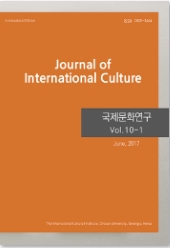
This study is concerned with the emergence and evolution of human language, and the differing views and ideas among scientists on this topic. Despite the fact that some of these ideas lack evidence and objectivity, they are still significant to a certain extent. Especially if they are placed in comparison with the acquisition of language in children. This research aims to explore two stages of human language, the first is the creation of mankind and their early activities and interaction with other humans, and secondly at the stage of childhood, when children acquire language from living in a society where a particular language is spoken by the people of that community. This research found the following important results: The emergence of language during childhood goes through particular stages different from those experienced by the first creation of mankind, when language was uttered for the first time, as they go through specific stages of development which most of the world s children experience when first acquiring language. Children then continue to develop their language until the child reaches a stage of stability, where the child utters the language of the community in which he lives only. At this point, acquiring languages other than the language of society around them requires conscious study. In addition to this, there is a clear difference between the development of natural language from the first humans, and the development of language in children who acquire language living in a particular discourse community.
(0)
(0)